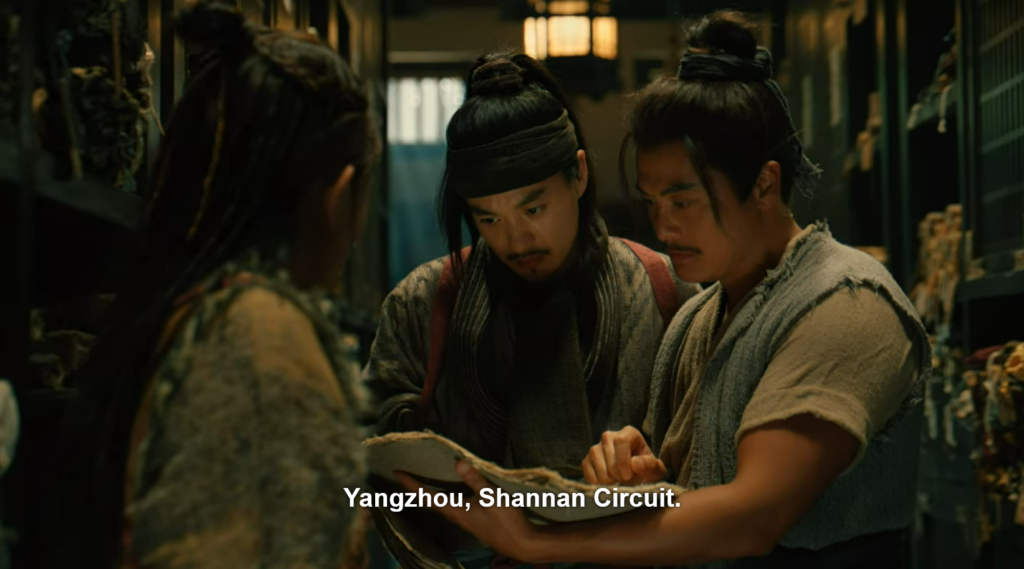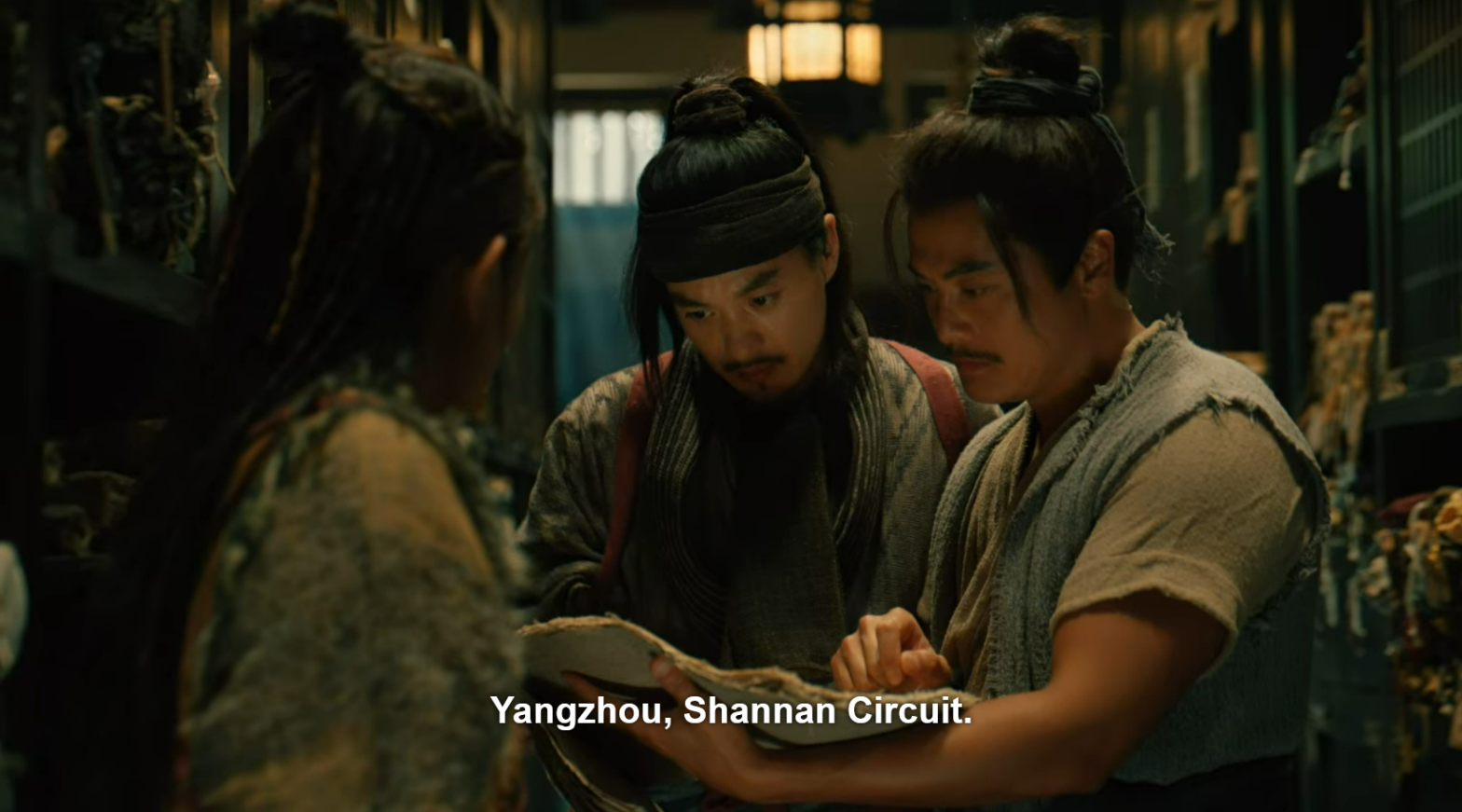TV Review: Judge Dee Mysteries
According to historical records, Judge Dee is based on a real-life person, Di Renjie (630-704), a magistrate and court official of the Tang Dynasty who was well regarded for his ability to resolve difficult cases and many wise actions in governance. In the Ming Dynasty of the 18th Century, a pseudonymous author, Buti Zhuanren, published a novel Di Gong An, (“Celebrated Cases of Judge Dee”) that had the magistrate involved in solving several mysteries. As was the fashion of Chinese literature at the time, it mixed in anachronistic elements from later dynasties. This book was found and translated by Robert van Gulik, a Dutch diplomat and Sinologist. He was then inspired to write other mystery books starring Judge Dee, which became a series. Other authors have picked up the character since van Gulik’s death, and there have been multiple TV and movie adaptations.

All of which is to say that there are several layers of adaptation even before we get to this latest Chinese television drama (currently available on Netflix in the U.S.) I’m not going to quibble about canonicity.
In this version of events, we first meet Di Renjie, courtesy name Huaiying, (Yiwei Zhou) as a young man returning to the capital after some years in the western provinces getting first hand experience of the world. He’s supposed to be preparing for the Imperial exams to enter the official bureaucracy, but seems uninterested, stressing out his family retainer Hong Liang (Yong You). Di shows his chops as a detective by figuring out which of the many people staying at the inn with him is actually a thief, and where the goods are stashed.
Di then takes the exams, but the murder of a fellow examinee enmeshes him in a case that reeks of Imperial politics. In particular, the Empress Dowager Wu Zetian (Elain Zhong) takes a personal interest in the affair. (You may remember another Wu Zetian from my review of Iron Widow.) Di is revealed to have passed the examinations, but at a lesser level, so is sent off to the hinterlands for seasoning.
In this first season of the show, Judge Dee solves cases first in a port city, then in a desert city. He is assisted by Hong and his two bailiffs, Qiao Tai (Ta Ji) and Ma Rong (Lingzi Qu), formerly bandits who tried to rob Di but became his followers after he stomped them with superior kung fu. Qiao Tai is a deserter from the army, which causes problems a couple of times, and Ma Rong is a woman.
At first, I thought Ma Rong was supposed to be in disguise as a man, but nope, she’s a woman who inexplicably against all law and custom of the time is allowed to act as a bailiff. She’s also not completely reformed, absorbing some of the character traits of a third bailiff from the van Gulik stories. In this first season, we don’t get any insight into her life before becoming a bandit and meeting Qiao Tai.
To give more of a through line to the season, there’s two major continuing subplots. First is Di’s courtship of Cao An (Likun Wang), a musician with a troubled past. Due to the standards of current Chinese television production, this replaces Judge Dee’s three wives from the van Gulik books, and is a very slow burn. The final case of the season does suggest that they’re at last getting married and might even have conjugal relations.
There’s also the recurring threat of Heiyan, the Black Flame, which is the name of a particularly dangerous bandit gang, and also the name of their mysterious masked leader. Since this is fiction, Heiyan turns out to have a personal connection to both Cao An and Judge Dee.
Unlike the books, there’s generally only one major case going on at a time, and while several of the cases take elements from the van Gulik books, the changes are extensive enough that having read the books won’t really be a spoiler. Most of the cases take three or four episodes to resolve, and frequently end during the middle of an episode so that the first twenty minutes or so of the next case get to fill out the rest of the installment.
Especially in the Lanfang (desert city) episodes, the cast must struggle with balancing honorable obedience to law (Judge Dee’s default position), seeking justice (Ma Rong’s preference) and satisfying vengeance (several of the murderers.) Since this is in the “pure official” subgenre, Di Renjie can usually bring justice in the end by adherence to the law and protocol…it just takes longer.
There’s also several sequences designed primarily to have special effects and/or action scenes to spice up the slow-moving mysteries. This can be a little jarring.
Content note: Lots of murder, some gory. A bit of body horror and corpses. Slavery. Offscreen rape of a minor (This last is particularly striking as the perpetrator took steps to make it technically legal and gets to walk out of court a temporarily free man.) Prostitution (we never see them doing the sex part of the job onscreen.) Death of animals. One scene that may freak out people with insect phobias. Older teenagers and up should be able to handle it.
Recommended primarily to historical mystery and costume drama fans who aren’t too fussed about accuracy. Not recommended for anyone who has a conniption about “too much wokeness” whenever a woman is cast in a previously male role, or for van Gulik continuity purists. The second season has at least some scenes already shot, looks like it’s going much heavier on the Imperial politics.

